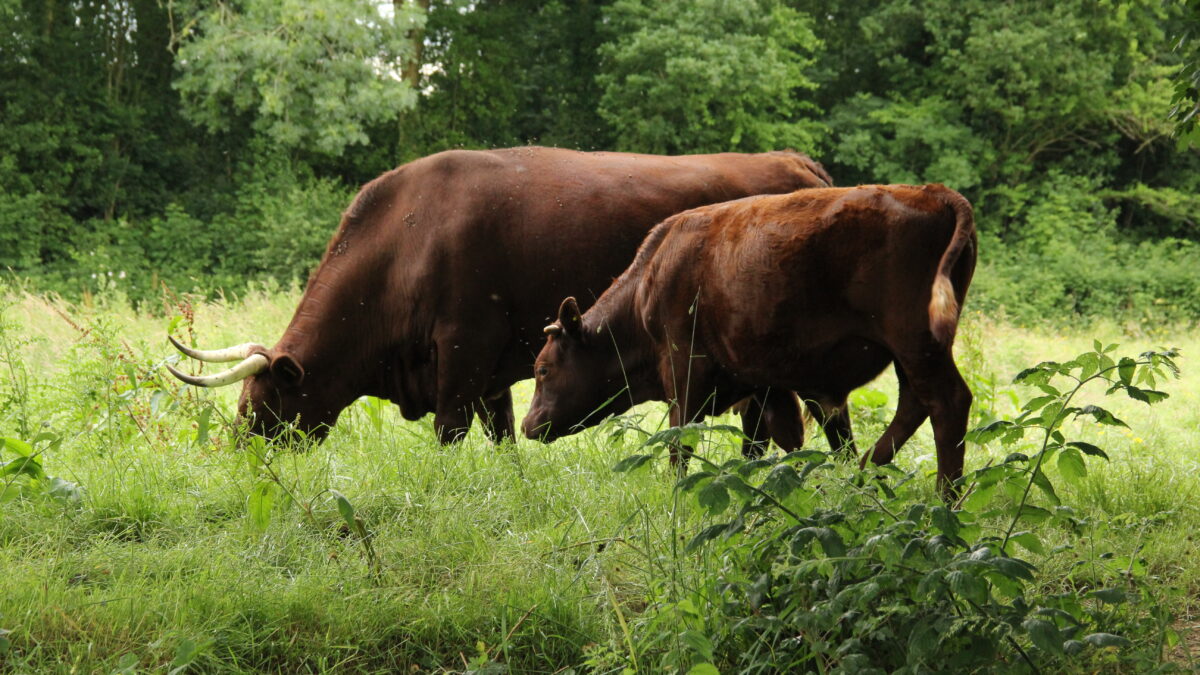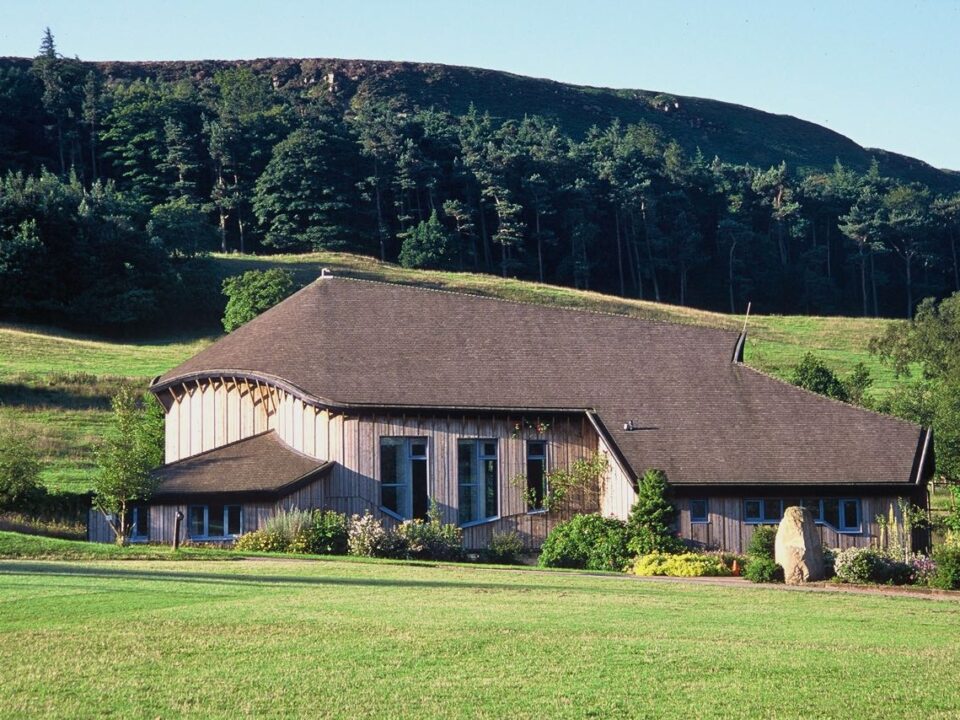Agriculture

Education
30 June 2020
Steiner House
30 June 2020Biodynamic agriculture is the world’s oldest system of organic growing, having much in common with other organic forms of farming; emphasising the use of manures and composts, and excluding the use of artificial fertilisers, pesticides and herbicides. It is an inspirational global movement that promotes a uniquely holistic approach to organic agriculture, gardening, food and health. Today, biodynamic farming is one of the most sustainable and regenerative forms of agriculture in the world.
What then is different from other methods? It is the importance it attaches to connecting soil, plants and animals to the universe. This happens through working with lunar phases and the movements of the planets for planting, sowing, tree and vine care, and the use of preparations made from herbal and natural substances for composts, and manure and silica field sprays which are activated and oxygenated by stirring then sprayed at certain times of day. These preparations are powerful activators of soil, compost and plant health. Livestock is fed, wherever possible, on food produced on the farm with a natural diet and their behavioural needs respected.
Indications for a healthy farming approach were given by Rudolf Steiner a hundred years ago, at a time when soil was already showing signs of becoming depleted through the use of artificial fertilisers; many farmers, gardeners and researchers have since developed these further.
Biodynamic produce not only looks good, it invariably tastes delicious, and has good shelf-life too. Its wine is becoming famous for quality and terroir!
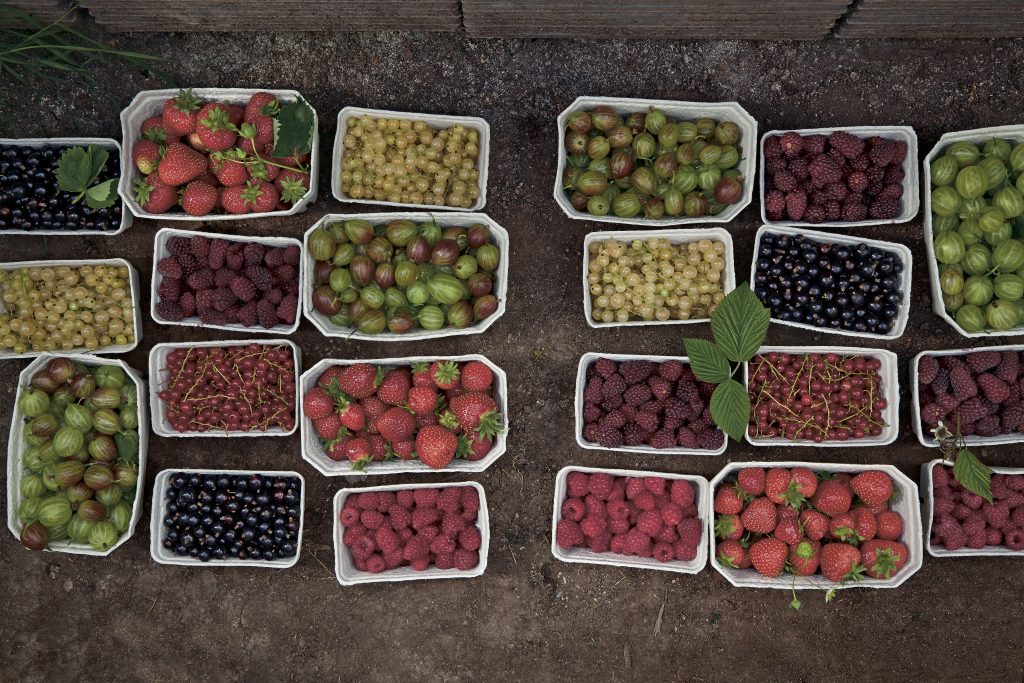
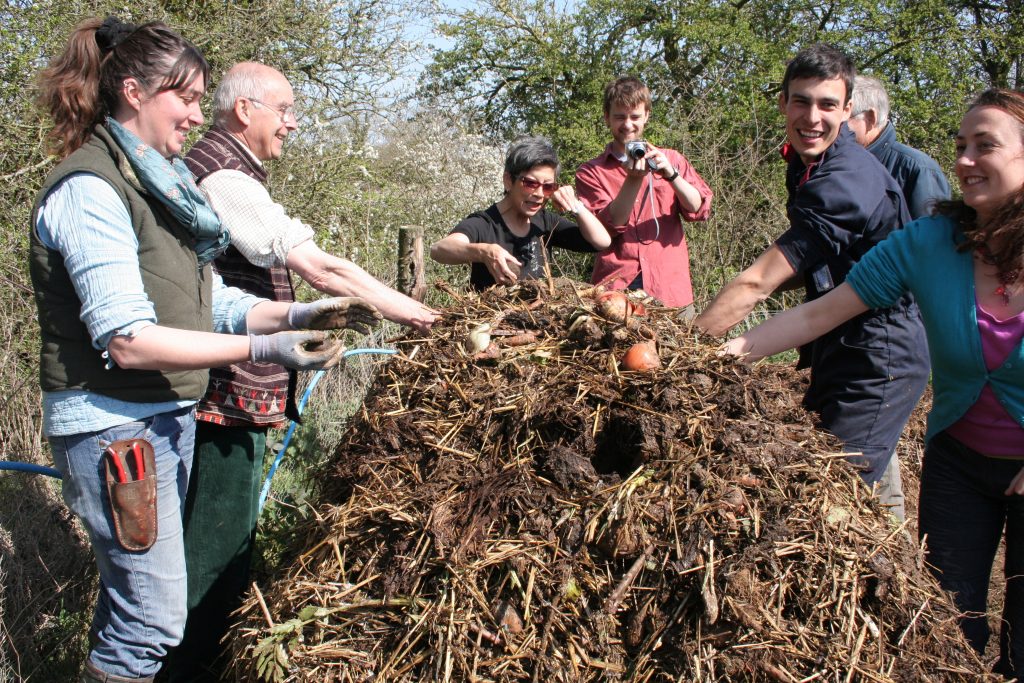
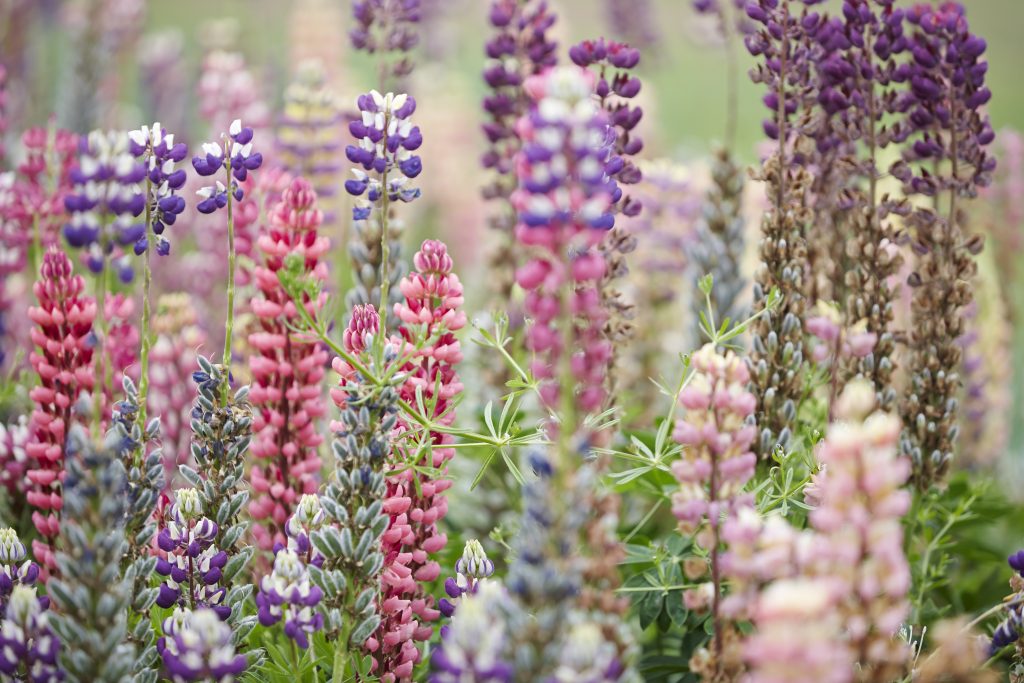
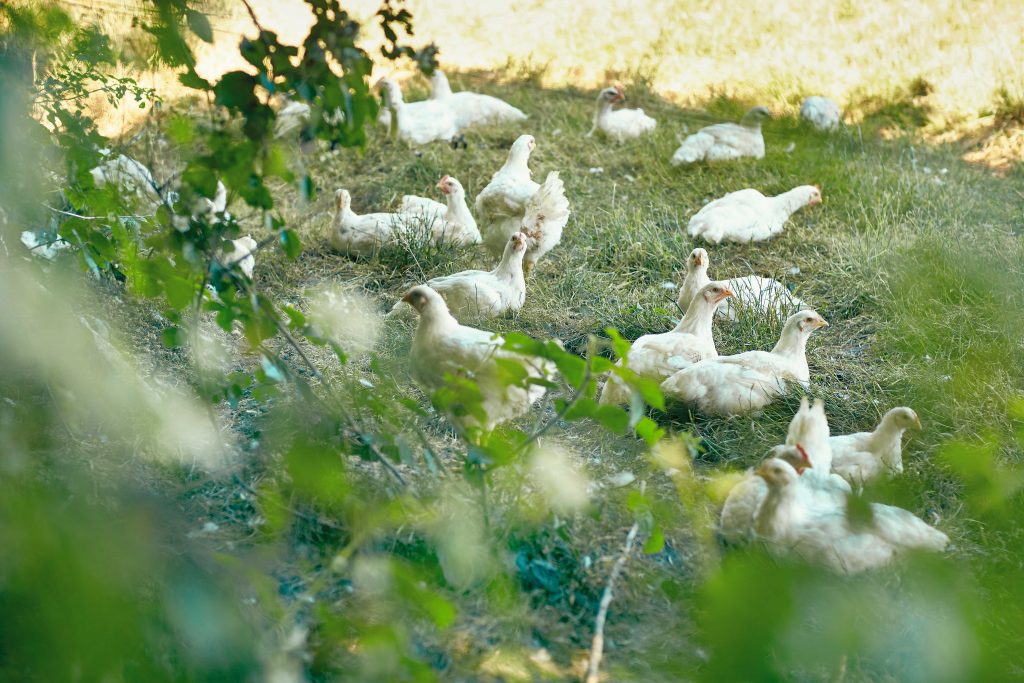
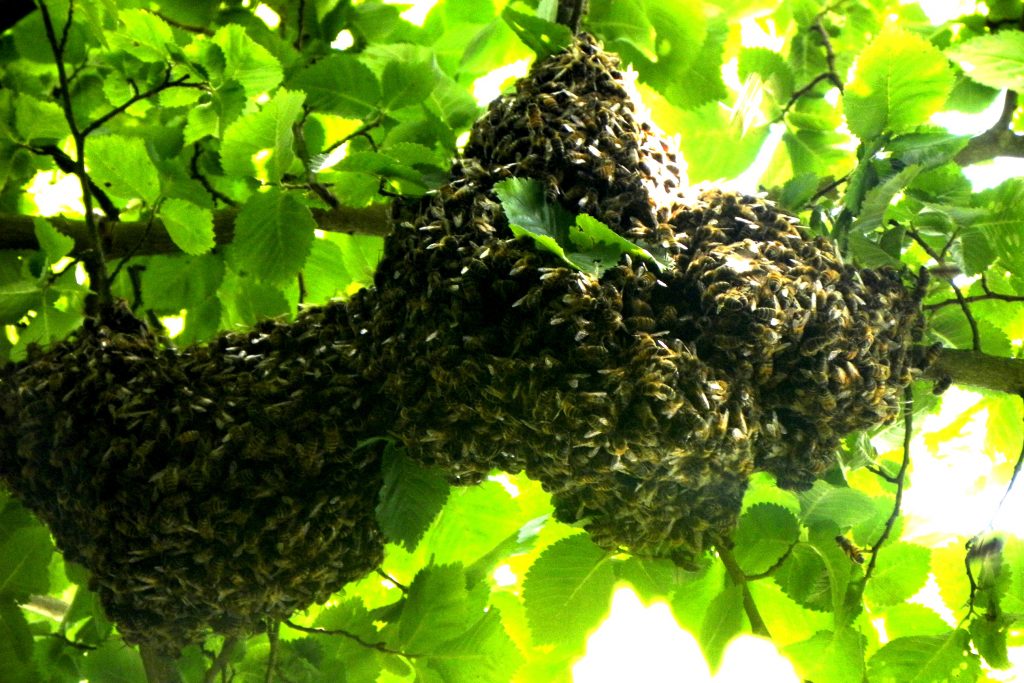
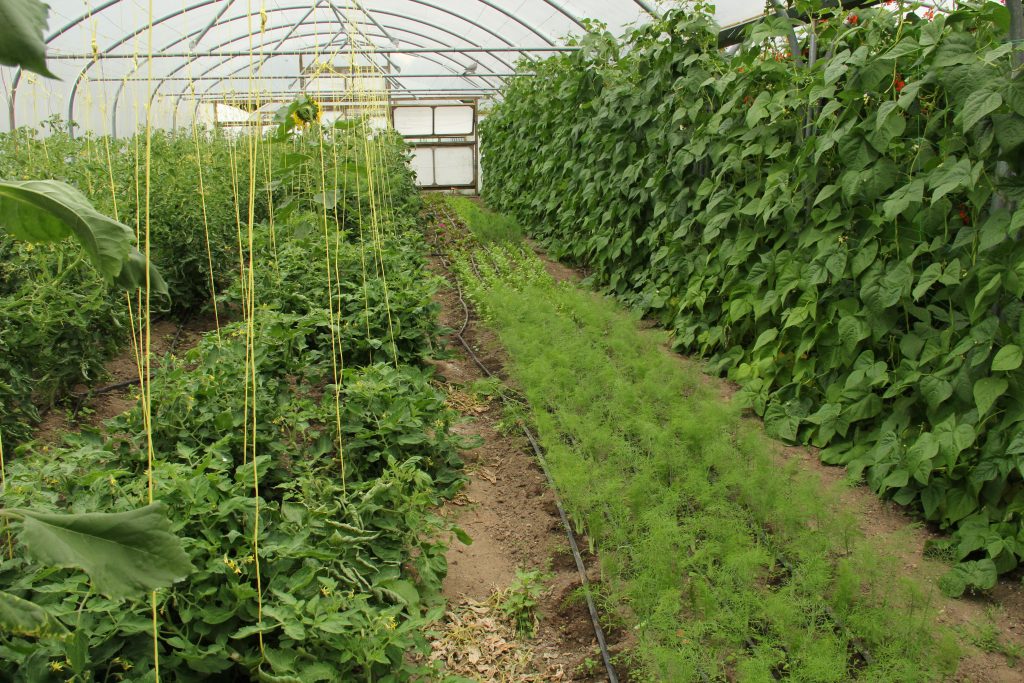
The Biodynamic Agricultural Association
The practice of biodynamic farming and gardening arises from the concept that the whole earth is alive and that each farm or garden can become a self-sustaining and unique organism within it. It builds on the sound husbandry techniques of traditional mixed farming and organic gardening systems and integrates scientific developments appropriately. Specially made preparations based on natural and organic substances are used to enhance soil life, and through it, the health and vigour of crops and livestock. By working with the natural processes and rhythms of nature, taking account of the influences from sun, moon and stars, and with the careful application of these Biodynamic Preparations, it is possible to achieve maximum vitality and wholesome nourishment for body, soul and spirit.
Food grown biodynamically is marketed under the Demeter label (and Organic Registration GB-ORG-06), is guaranteed to be free of added chemicals, hormone treatments and genetically modified materials. Certification to Demeter and organic standards can be applied for with BDA Certification (https://bdcertification.org.uk/ ) so that farmers, growers cand processors can use the organic label and international Demeter logo to guarantee quality to these standards.
Please visit biodynamic.org.uk for more information. The Biodynamic Association works closely with other biodynamic organisations and in particular those below who complement with other aspects of the biodynamic work.
Produce – Demeter = certified biodynamic
Biodynamic – Demeter produce can be bought from some 18 markets in London and from farm shops, growers and farmers around the country. Lots of them also provide box-schemes and delivery systems. Many Health Food shops sell Demeter dry goods and bottled fruit etc. If you do not find it at your local shop, try asking if they can stock some for you. Clearspring and Windmill Organics, amongst others, stock a range of Demeter goods.
See https://www.biodynamic-info.co.uk/directory-2 for many more licensees product listings.
Please visit biodynamic.org.uk for more information.
Biodynamic Agricultural College
The Biodynamic Agricultural College offers holistic training and individual learning in biodynamic agriculture, both work-based and online. Its role is to train farmers and gardeners and inform those interested in the biodynamic methods and approach.
The practical course: a two-year, full-time, work-based and certified diploma at level 3 (like an apprenticeship) has run since 2010 with over 150 graduating over that time. It has an ongoing application process, join and do a full 2-year cycle of the course, working on a farm or horticultural enterprise with the modules alongside.
Over this same time-period the College has gained expertise in providing online learning courses in biodynamic principles and practice to support students from all over the world. This part of the College offers teacher-supported, as well as self-study courses. The offer includes an introduction to biodynamics, an agricultural lecture study group, farm observation study, Biodynamic Preparations study, a viticulture course and more. The online course offer is growing each year.
By combining written introductory and reference materials, plenty of practical exercises and experience opportunities, videos and live seminars, these courses provide a way of understanding the principles that stand behind biodynamic agriculture and how they influence the practicalities of working with the land, soil, plants and animals.
The online provision aims to support new entrant and existing farmers to access learning whilst working, or living in remote areas. It also offers teaching and learning resources for other biodynamic trainings around the world.
By bringing together an online international community of students and teachers, the College is creating a forum for discussion and sharing; actively addressing how biodynamic principles are applied in different climates and circumstances all over the world.
Please visit www.bdacollege.org.uk for more information.
Biodynamic Land Trust
The Biodynamic Land Trust was set up in 2011 to hold and secure biodynamic land for the community and future generations, to enable more local and community growing, and help entrant farmers find land for food growing.
The Trust is a charitable community benefit society working with communities and farmers to:
- secure UK land in trust,
- protect and develop biodynamic, organic, community-connected farms, and
- provide further opportunities for sustainable agriculture and entrant farmers/growers.
The Trust works to increase planet-and-nature-friendly farming for healthy soil, animals, food, and people. It seeks to support and increase biodynamic and organic/agroecological land until everyone can eat healthy local (biodynamic/organic) food and be connected to where it comes from. Land can be the basis not only of a healthy food system, but also of a social and local economic network for the revival of balanced rural activity. Biodynamic land offers support to work in harmony with nature for a healthy bio-diversity which is essential for the health of humanity and the planet. People support and invest in this work as shareholders, donors, directors and volunteers.
Please visit https://biodynamiclandtrust.org.uk/ for more information.
Seed Cooperative
Inspired by the need in the UK for quality seeds and better adapted crop varieties, the Seed Co-operative was founded to contribute to building a more resilient and localised food system. Open pollinated varieties adapted to agroecological, organic and biodynamic growing systems are essential ingredients in making this happen.
The Seed Co-operative grows, processes and sells biodynamic and organic, open-pollinated seed for the UK and beyond. It is also developing new varieties and works closely with biodynamic and organic partners in the UK and the EU.
The Journey: the Seed Co-operative came into being in 2014 as an initiative of the Biodynamic Association, supported by Garden Organic and the Organic Research Centre, working with the Open Pollinated Seeds initiative and experienced seedsman Hans Steenbergen of Stormy Hall Seeds. David Price and Kate Ayre became the manager and grower.
In 2016 the Seed Coop bought Gosberton Bank Nursery in Lincolnshire, which had been largely abandoned for four years. The 24-acre centre, nursed back to health thanks to the hard work of staff and a host of volunteers, includes 2.5 acres of glasshouses with a rainwater-fed reservoir for irrigation, buildings for seed processing and storage, and accommodation. In 2017 the Seed Coop was a finalist in the BBC Food and Farming Awards, and organic certification was gained in April 2018 and Biodynamic Demeter status in 2019. As well as growing seeds on site, the Coop manages a network of seed growers around the country.
Please visit https://seedcooperative.org.uk/pages/our-story for more information.
Restaurants/ Cafes using biodynamic/ organic produce
Farmacy https://farmacylondon.com/
The Hive Wellbeing Biodynamic & Organic Cafe and Natural Wine Bar https://thehive.london/
Spring Restaurant https://springrestaurant.co.uk/

